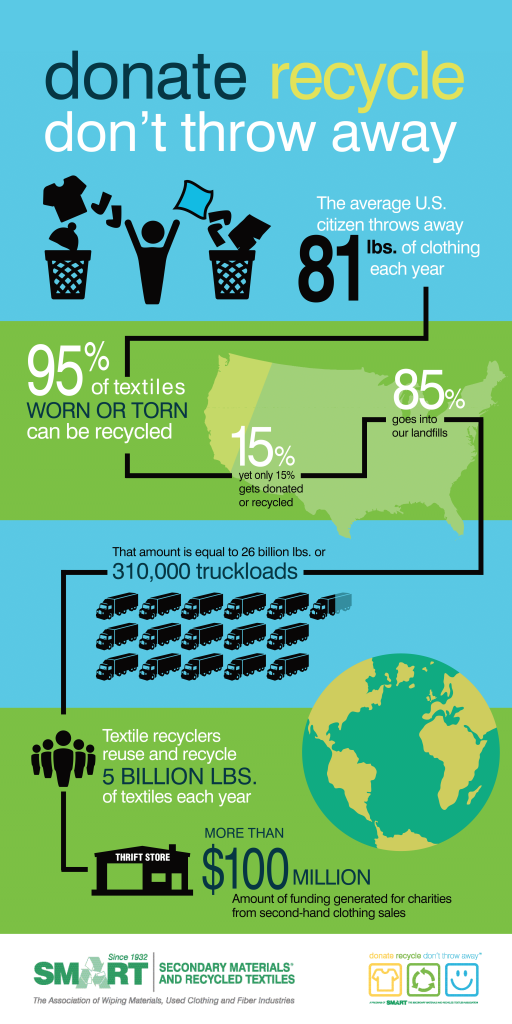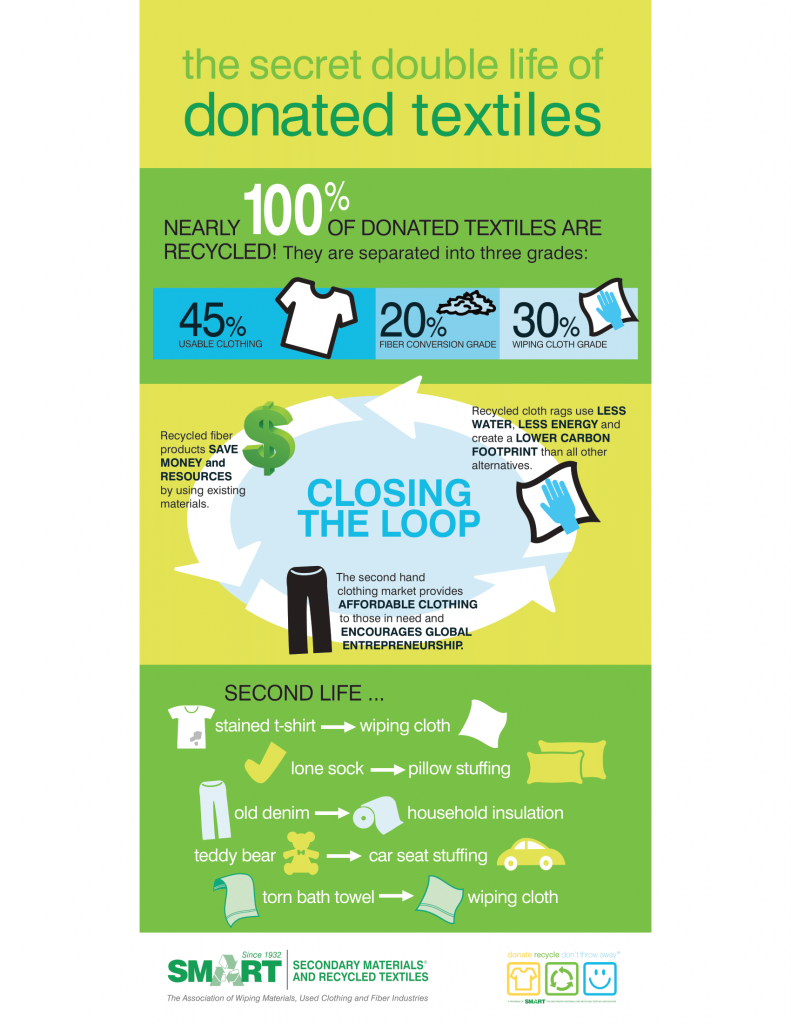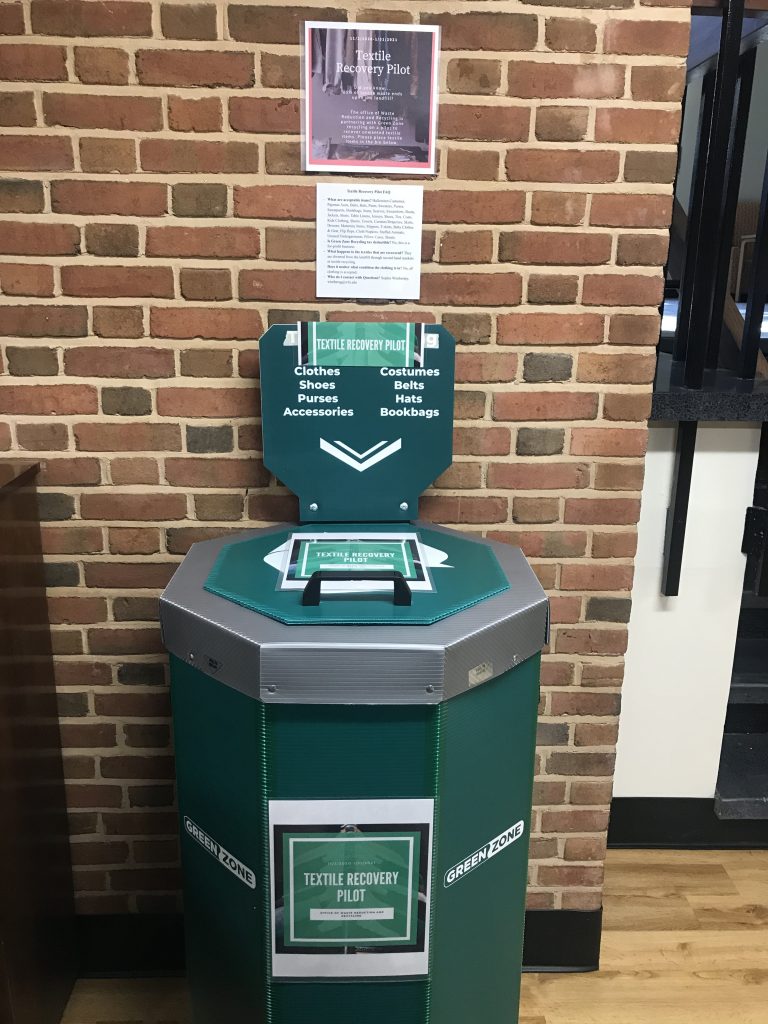Green Zone Recycling
Sophie Wimberley, our Waste Reduction Specialist in Facilities & Campus Services, has introduced a new textile waste redirection project to 4 of our buildings on campus. It is called Green Zone, and helps to redirect the clothing and textile waste that would not otherwise be able to be donated.
The issue of textile waste is a prevalent one, with landfills receiving more than 11 million tons of MSW textiles in 2017, totalling 8 percent of all MSW landfilled. Dumping textiles in landfills is especially damaging since they can take over 200 years to decompose. Additionally, the volume of clothing that people in America throw away annually has doubled in the last 20 years, jumping from 7 to 14 million tons.


Sophie Wimberley has recognized this need and initiated the Green Zone pilot in an attempt to find the most convenient solution for our Wake Forest community. Started in early November, this 3 month pilot program will provide campus with a year round solution to textile waste. Uniforms or clothing with Wake Forest logos and graphics cannot be donated or sold in consignment shops, so the Green Zone initiative provides a sustainable way to redirect these items from the landfill. Recycled textiles are made into washrags, insulation material, toys, and other necessary products to be redistributed into our community.

The Green Zone bins are open for student, staff, faculty, and Wake Forest community use year round. There are 4 collection stations located across campus in convenient locations. The bins can be found in the Benson Mail Room, Polo Residence Hall, North Campus Dining, and Luter Residence Hall. For more information about this project and process, reach out to Sophie Wimberley in Facilities & Campus Services.
